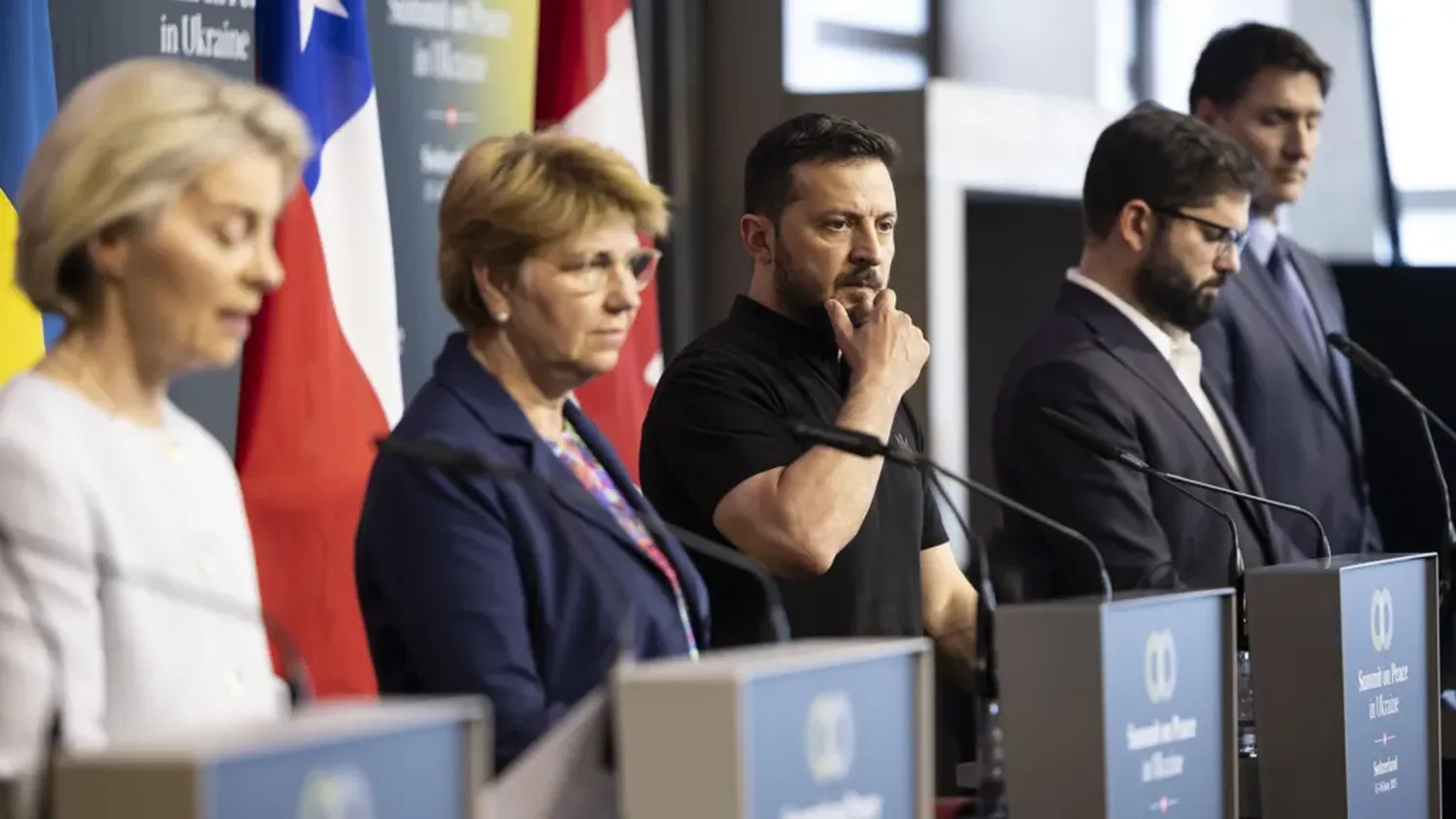Russia-Ukraine War
Peace Talks Tomorrow if Russia Leaves Ukraine - Zelensky
This announcement was made during a high-profile peace summit held at the picturesque Bürgenstock resort in Switzerland
Geneva, June 16, 2024 — Ukrainian President Volodymyr Zelensky has declared his readiness to engage in immediate peace talks with Russia, provided that Moscow withdraws its troops from all Ukrainian territories. This announcement was made during a high-profile peace summit held at the picturesque Bürgenstock resort in Switzerland, where over 50 heads of state and government gathered to discuss a roadmap for ending the ongoing conflict.
Zelensky's statement comes amidst a backdrop of intensified fighting and a complex diplomatic landscape. The Ukrainian leader emphasized that negotiations could commence "tomorrow" if Russia vacates the regions it has occupied since the invasion began in February 2022. "Russia can start the negotiations with us tomorrow, not waiting for anything, if they pull out from our legal territories," Zelensky told reporters.
The summit, attended by representatives from more than 90 countries and international organizations, aims to generate broad support for Ukraine's territorial sovereignty. However, the absence of Russia and its key ally China has cast doubts on the effectiveness of the conference. Despite this, the delegates remain optimistic about reaching a consensus on critical issues such as nuclear safety, food security, and the exchange of prisoners.
During the summit, Zelensky reiterated his stance that Russia is not genuinely interested in peace. "Russia does not want peace, that is a fact... Russia and their leadership are not ready for a just peace, that's a fact," he asserted. This sentiment was echoed by various world leaders, including Italian Prime Minister Giorgia Meloni, who described Russian President Vladimir Putin's recent ceasefire proposal as "propaganda."
The summit's agenda includes discussions on nuclear safety, particularly concerning the Russia-controlled Zaporizhzhia power plant, humanitarian assistance, and global food security. These topics, while important, fall short of the comprehensive peace plan Zelensky proposed late last year, which includes the complete withdrawal of Russian forces, reparations, and accountability for war crimes.
U.S. Vice President Kamala Harris, representing the United States at the summit, announced an additional $1.5 billion in assistance to Ukraine. She pledged full support for Kyiv's efforts to achieve "a just and lasting peace" in the face of Russian aggression. Harris's announcement underscores the continued commitment of Western allies to support Ukraine, despite the prolonged nature of the conflict.
The summit also provided a platform for Ukraine to highlight the human cost of the war. Ukrainian officials reported that approximately 31,000 soldiers have perished since the conflict began, with the actual number potentially higher. The issue of abducted Ukrainian children was also brought to the forefront, with White House National Security Advisor Jake Sullivan acknowledging Qatar's role in mediating the return of over 30 children from Russia.
Despite the significant attendance and the high stakes, analysts remain skeptical about the summit's potential impact. The International Crisis Group, an advisory firm working to end conflict, expressed doubts about the conference's ability to deliver substantial outcomes. "Absent a major surprise on the Bürgenstock, the event is unlikely to deliver much of consequence," the organization stated. Nonetheless, the summit serves as a crucial platform for Ukraine and its allies to reiterate the importance of upholding international law and restoring Ukraine's territorial integrity.
The absence of Russia and China at the summit has been a point of contention. Beijing, which has proposed its own peace plan, maintains that any resolution must involve both Russia and Ukraine. Critics argue that without the participation of these key players, the summit's resolutions may lack the necessary weight to effect real change.
As the summit progresses, the focus remains on building a broad coalition to support Ukraine's sovereignty and to pressure Russia into compliance. French President Emmanuel Macron emphasized the need to widen the circle of countries participating in the peace process, while Austrian Chancellor Karl Nehammer highlighted the importance of rallying more allies to condemn Russia's actions.
In conclusion, while the Swiss summit may not immediately resolve the conflict, it represents a significant step in the international community's efforts to support Ukraine and hold Russia accountable. President Zelensky's call for immediate peace talks, contingent on Russia's withdrawal, underscores the urgent need for a diplomatic resolution to the war that has ravaged Ukraine for over two years. The world watches closely, hoping that this summit will pave the way for a lasting peace.

